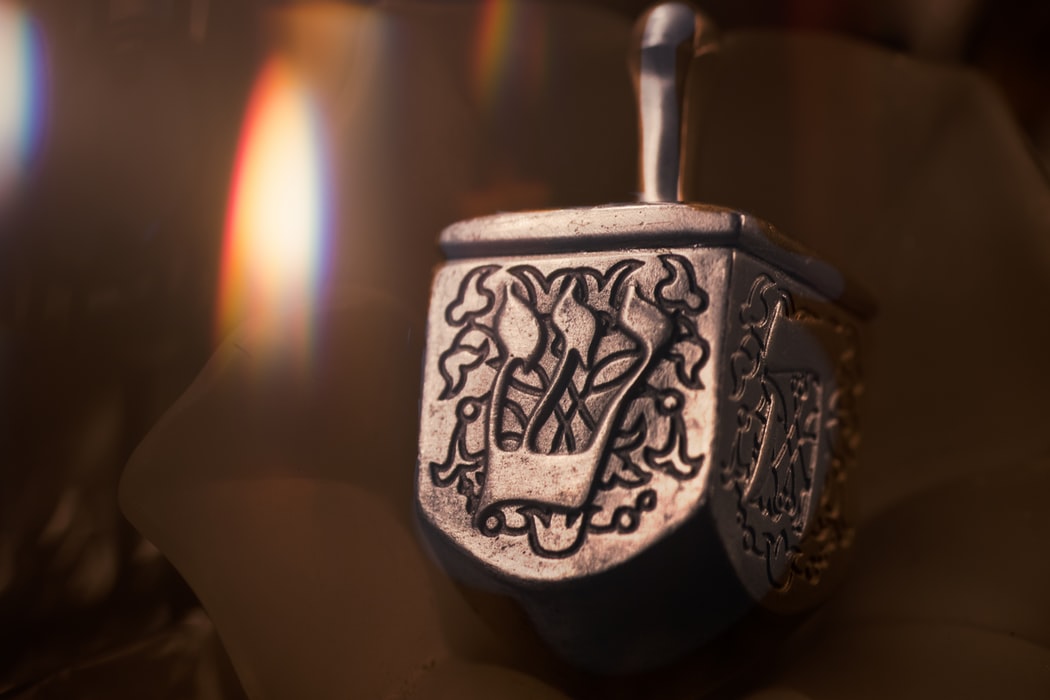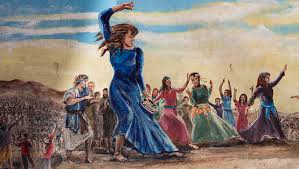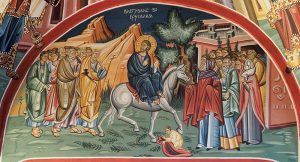War, Bravery, Persecution, Miracles, Dedication, Enlightenment
Chanukkah ( חנוכה ) means “dedication.” The Feast of Hanukkah is the Feast of Dedication. The events behind the festival of Hanukkah are found in the apocryphal book of 1 Maccabees. Therein the story is told of how Judah Maccabee and his heroic band of freedom fighters overthrew the tyrannical Seleucid forces that had subdued Judea and defiled the Jerusalem Temple.
The Hanukkah Story
In the time of Alexander the Great’s empire, the land of Israel found itself buffeted between world powers that sought to use her as a natural land bridge between Africa and Eurasia. The people of Israel were the victims of great political upheavals. War was never far from their land. In the meantime, another war was being waged among the people of Israel. Alexander’s conquests had introduced the world to Greek language, thought, custom, and philosophy.
Abomination of Desolation
In 169 BCE, after sacking Jerusalem and slaughtering many of its citizens, Antiochus entered the holy Temple and stole the gold and silver, including the incense altar, the table, and the menorah.Not long after that, Antiochus issued orders that all nations under his power were to immediately relinquish their various religions and cultures and embrace a single monolithic standard of Greek culture and faith. The edicts were specifically aimed at the Jews.
The daily sacrifices were discontinued. The Jerusalem Temple was converted into a Temple to Zeus. Antiochus sacrificed pigs to the idol upon the altar of the LORD and also introduced laws forbidding circumcision, Sabbath observance, kosher diets, and the study of Torah. Many Jews chose to comply with the new laws. They forsook the Torah to save their lives. Others stood fast to the covenant and paid for their convictions dearly.
Matthew and his sons were priests who abandoned Jerusalem when the foreigners defiled the Temple. After killing the king’s officers who came to their city, he and his sons fled for the hills, crying ““Whosoever is zealous for the Torah, and keeps the covenant, let him follow me!” (1 Maccabees 2:27-28).
The Hammers
Hidden away in the mountains, Matthew and his sons were not long alone. Very quickly, all those who were zealous for the Torah gathered around them. Soon they formed a small army. Matthew himself was very old, and he died in the hills.His eldest son, Judah, took charge of the small rebel group. Engaging in guerilla warfare against the Syrian occupation force, Judah and his freedom fighters came to be called the “Maccabees,” which means “Hammers.” Judah would forever after be known as Judah the Maccabee—Judah the Hammer.
A Great Miracle Happened There
Soon enough, the Syrian-Greek Seleucids sent thousands of mercenary soldiers to root out the rebels in the hills. They must have thought it would bring a quick and easy end to the Hanukkah revolution. But in a stunning reversal, the LORD overthrew the massive army before the small band of rebels. It was clearly a miracle from heaven. Judah and his brave Maccabees fought many battles for several long years. Miraculous intervention shifted the battles in the Maccabees’ favor until, at last, they were able to reclaim Jerusalem.
Rededicating the Temple
Upon entering Jerusalem, Judah and his brother priests were dismayed to see the Temple desolate, the altar profaned, the gates burned, and the holy courtyard overgrown with weeds. They tore their garments, cried out to heaven, and sounded the shofar Judah and his men set about restoring the Temple. They tore down the defiled altar and built a new one. They fashioned new implements and furnishings from the material that was available.
Legend has it that when they searched the Temple, they were only able to find one cruse of olive oil with the priestly stamp upon it. It was enough to fuel the lamps of the menorah for only one day. They lit it, fully expecting it to be extinguished the same day. Miraculously, the oil lasted for eight days. Some say this is the reason Hanukkah is celebrated for eight days.It was on the twenty-fifth day of Kislev, exactly three years after the first pig had been sacrificed on the altar, that Judah and his men reinstated the daily burnt offerings to the LORD. They celebrated the rededication of the Temple for eight days. The days of dedication came to be remembered and celebrated as the festival of Hanukkah.
an excerpt from “The Story of Hanukkah“, written by D. Thomas Lancaster, Director of Education at First Fruits of Zion




